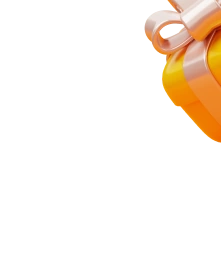Why Does My Dog Keep Swallowing and Gulping?
As a dog owner, you may have noticed your furry companion engaging in the seemingly odd behavior of swallowing and gulping frequently. This behavior can be concerning and may leave you wondering why your dog is exhibiting such actions. In this article, we will explore the potential reasons behind this behavior and provide insights into what you can do to help your dog.
Dogs, like humans, have their unique ways of communicating their needs and feelings. Swallowing and gulping can be a form of communication or a response to various underlying causes. It is essential to pay attention to your dog’s behavior and understand the potential reasons behind this behavior to ensure their well-being.
One possible reason for your dog’s frequent swallowing and gulping could be related to their diet and eating habits. Dogs may swallow and gulp when they are overly excited during mealtime or when they eat too quickly. This behavior is often seen in dogs who have a competitive nature or have had experiences of limited food availability in the past. Eating too quickly can lead to indigestion and discomfort, causing your dog to swallow and gulp excessively.
Another possible cause could be related to gastrointestinal issues. Dogs may exhibit this behavior when they have an upset stomach, acid reflux, or other digestive problems. Swallowing and gulping can help alleviate discomfort or clear their throat from excess stomach acid. If you notice other symptoms such as vomiting, diarrhea, or loss of appetite, it is crucial to consult with a veterinarian to rule out any underlying medical conditions.
Anxiety and stress can also contribute to excessive swallowing and gulping in dogs. Just like humans, dogs can experience anxiety and stress in various situations, such as during thunderstorms, fireworks, or when left alone for extended periods. Swallowing and gulping can be a coping mechanism for dogs to deal with their anxiety or stress. Identifying the triggers and providing appropriate support and training can help alleviate this behavior.
In conclusion, there can be several reasons why your dog keeps swallowing and gulping. It could be related to their eating habits, gastrointestinal issues, or anxiety and stress. Understanding the underlying cause is crucial in order to address the behavior effectively. In the next section, we will provide practical recommendations to help manage and reduce excessive swallowing and gulping in dogs.
Understanding the Reasons Behind Excessive Swallowing and Gulping in Dogs
Excessive swallowing and gulping in dogs can be a cause for concern for pet owners. It is important to delve deeper into the potential reasons behind this behavior to ensure the well-being of our furry friends. Let’s explore some common factors that may contribute to this behavior:
Eating Habits and Behavior
Dogs are known for their enthusiasm when it comes to mealtime. Some dogs may swallow and gulp their food quickly due to their competitive nature or past experiences of limited food availability. This behavior can lead to indigestion, discomfort, and even choking hazards. To address this, consider implementing the following strategies:
- Provide smaller, more frequent meals to discourage rapid eating.
- Use puzzle feeders or slow-feed bowls designed to slow down eating pace.
- Ensure a calm feeding environment to reduce excitement and competition.
Gastrointestinal Issues
Swallowing and gulping can also be a sign of underlying gastrointestinal issues in dogs. Conditions such as acid reflux, upset stomach, or gastrointestinal inflammation can cause discomfort, leading to excessive swallowing. If you suspect gastrointestinal problems, it is important to consult with a veterinarian for proper diagnosis and treatment. In the meantime, you can try the following:
- Feed your dog a balanced diet that is easy to digest.
- Avoid feeding your dog immediately before exercise or physical activity.
- Consider feeding smaller meals throughout the day to reduce the workload on the digestive system.
Anxiety and Stress
Dogs, just like humans, can experience anxiety and stress in various situations. Swallowing and gulping can be a coping mechanism for dogs to deal with their anxiety or stress. If you suspect that anxiety or stress is the underlying cause, try the following techniques to help your dog relax:
- Provide a safe and comfortable space for your dog to retreat to when they feel anxious.
- Use positive reinforcement training techniques to build confidence and reduce anxiety.
- Consider using calming aids such as pheromone diffusers or anxiety wraps.
Conclusions
Excessive swallowing and gulping in dogs can have various causes, including eating habits, gastrointestinal issues, and anxiety or stress. By understanding the underlying reasons, we can take appropriate measures to address this behavior and ensure the well-being of our canine companions. Remember, if you have concerns about your dog’s health or behavior, it is always best to consult with a veterinarian for professional guidance.
Practical Recommendations to Manage Excessive Swallowing and Gulping in Dogs
1. Address Eating Habits and Behavior
To help your dog overcome rapid eating and reduce excessive swallowing and gulping, consider the following recommendations:
- Slow Feeding: Use specialized slow-feed bowls or puzzle feeders that require your dog to work for their food, slowing down their eating pace.
- Smaller, More Frequent Meals: Instead of feeding your dog one or two large meals, divide their daily food portion into smaller, more frequent meals to discourage rapid eating.
- Calm Feeding Environment: Create a peaceful and quiet feeding area for your dog, away from distractions, to minimize excitement and competition during mealtime.
2. Address Gastrointestinal Issues
If you suspect that gastrointestinal issues are causing your dog’s excessive swallowing and gulping, consider the following recommendations:
- Veterinary Consultation: Schedule an appointment with your veterinarian to discuss your dog’s symptoms and receive a proper diagnosis and treatment plan.
- Dietary Adjustments: Feed your dog a balanced diet that is easy to digest, avoiding foods that may trigger gastrointestinal discomfort.
- Meal Timing: Avoid feeding your dog immediately before exercise or physical activity to prevent digestive disturbances.
3. Address Anxiety and Stress
To help your dog cope with anxiety and stress, which can contribute to excessive swallowing and gulping, consider the following recommendations:
- Create a Safe Space: Provide a designated area or crate where your dog can retreat to when they feel anxious or stressed. Make it comfortable with their favorite toys or blankets.
- Positive Reinforcement Training: Use positive reinforcement techniques to build your dog’s confidence and help them associate positive experiences with anxiety-inducing situations.
- Calming Aids: Explore the use of natural calming aids such as pheromone diffusers, anxiety wraps, or herbal supplements, under the guidance of your veterinarian.
4. Professional Guidance
If your dog’s excessive swallowing and gulping persist or worsen despite implementing these recommendations, it is crucial to seek professional guidance from a veterinarian or a certified animal behaviorist. They can provide personalized advice and develop a comprehensive management plan tailored to your dog’s specific needs.
Remember, every dog is unique, and what works for one may not work for another. Patience, consistency, and understanding are key when addressing and managing your dog’s excessive swallowing and gulping behavior.





















